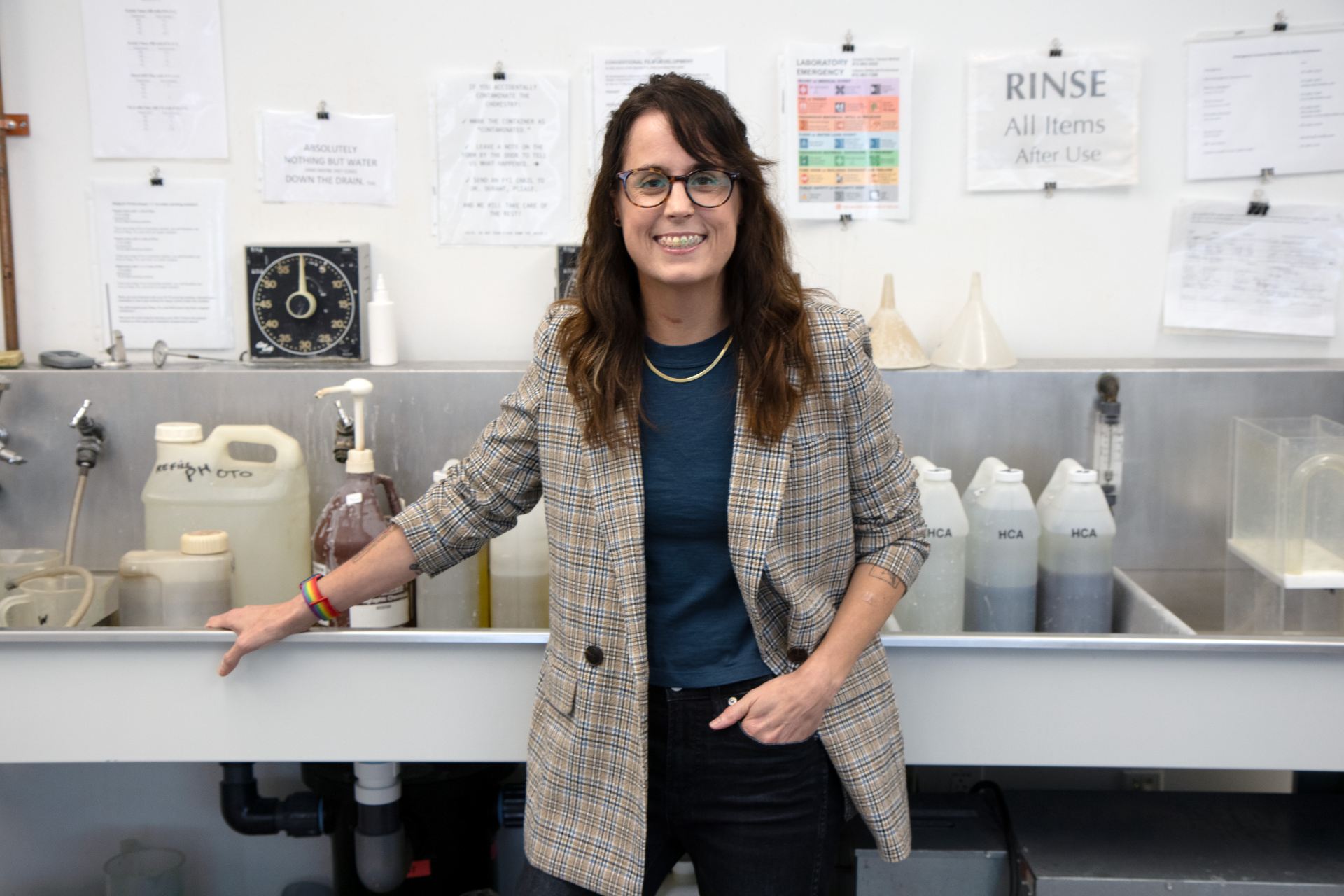
Dr. Diane Durant, PhD’13, associate professor of instruction at the University of Texas at Dallas, is spearheading a project to spotlight members of the University’s LGBTQIA+ population through professional portraits, providing the UTD community a glimpse into the compelling personal narratives of each participant.
Durant, a Harry W. Bass Jr. School of Arts, Humanities, and Technology scholar, believes that sharing the distinct experiences and identities of those who willingly have their picture taken amplifies UT Dallas’s inclusive and diverse environment and fosters its growth.
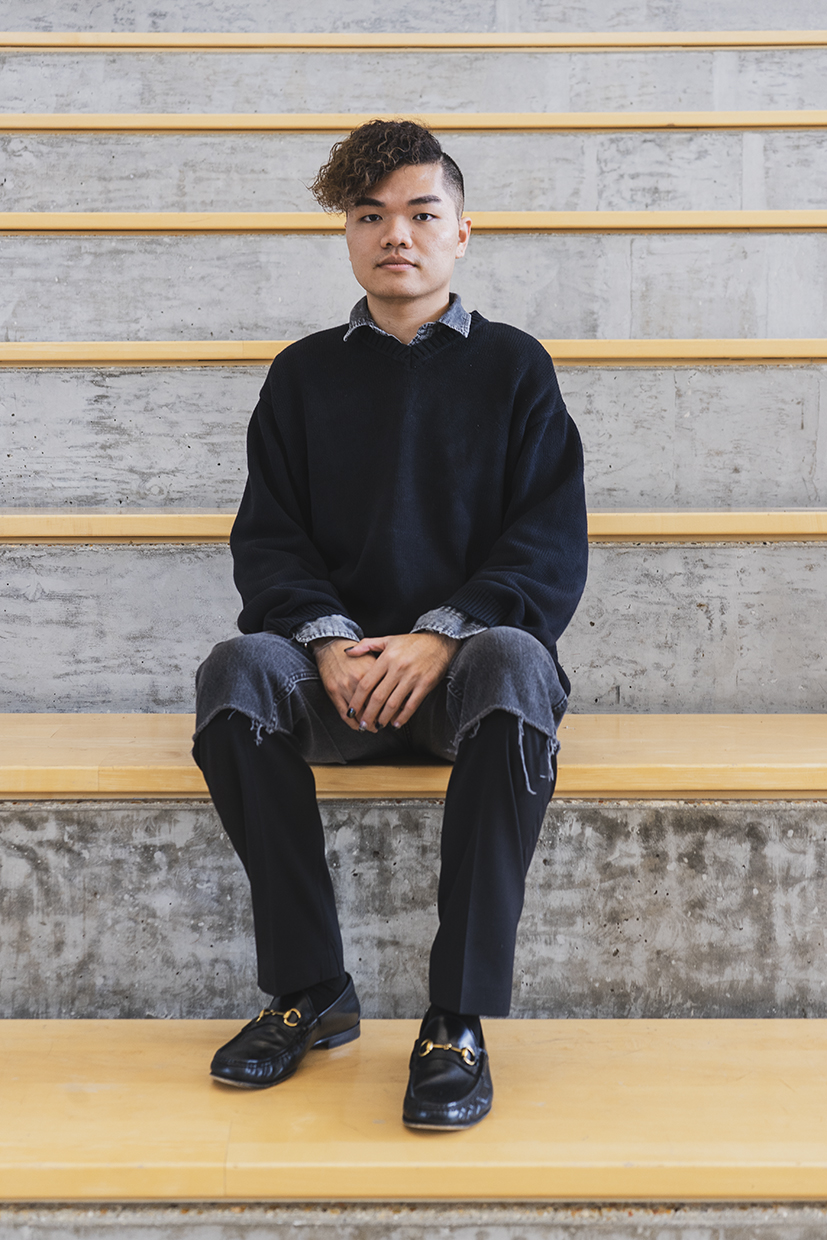
“The project came from my desire to increase visibility for LGBTQIA+ students, faculty, staff, and members of the UTD community,” Durant said. “I think a lot of that comes from not only the need for visibility, but the need for those spaces where LGBTQIA+ folks can be heard, share their stories and really have a place of prominence and respect, and give their stories the audience they deserve.”
With over a decade of experience as part of the UT Dallas faculty, Durant imparts her expertise in photography, text, images, and printing methods. At the Bass School, she teaches subjects involving darkroom processes, camera skills, and technique and development methods. Additionally, she specializes in traditional and experimental photographic printing methods and the procedures derived from bookmaking, printmaking, photography, computer imaging, painting, and graphic design.
For the UTD LGBTQIA+ Community Portraits, Durant highlights the self-reflection and the experiences of the individuals who volunteer to be captured in the photos through environmental portrait photography and text.
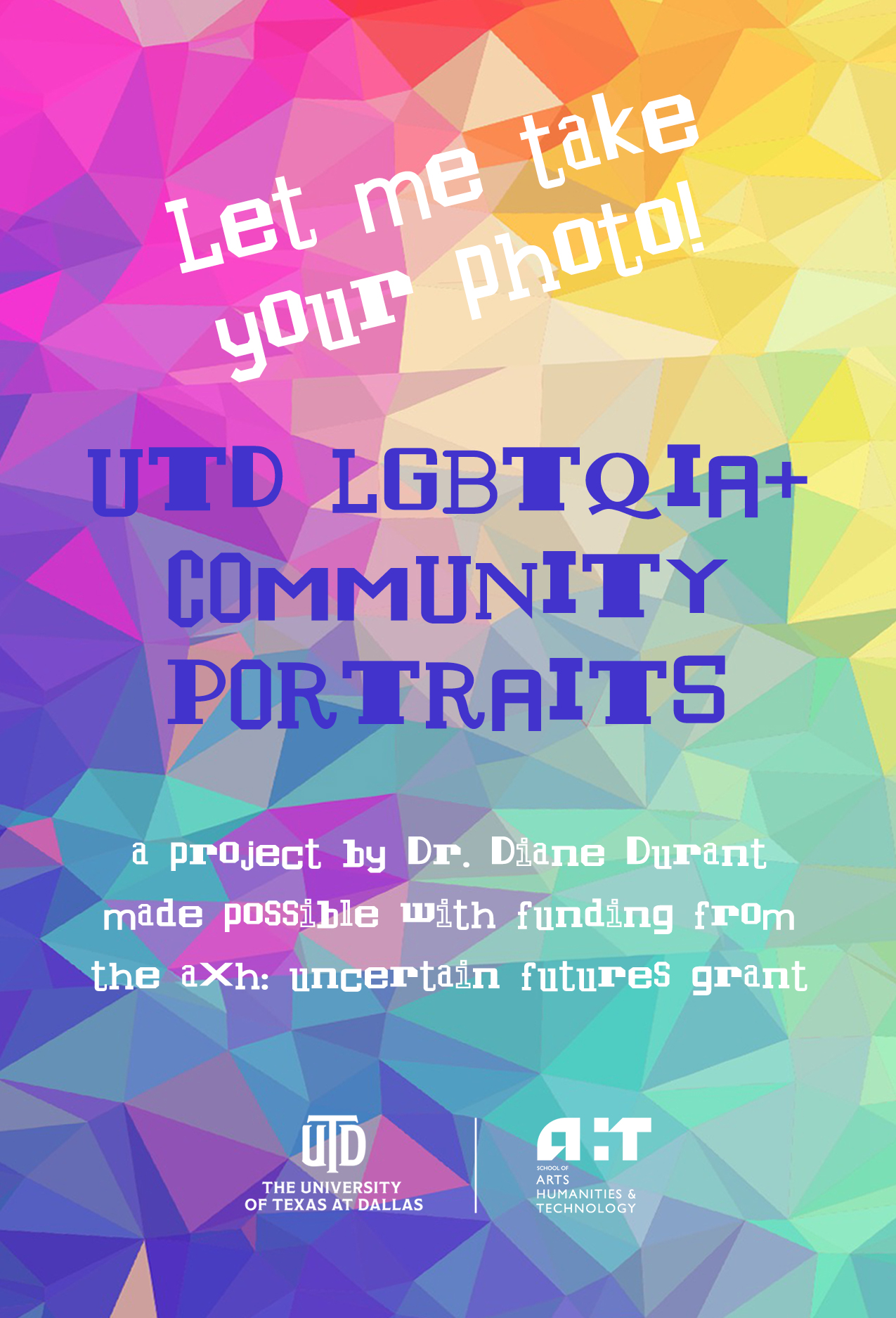
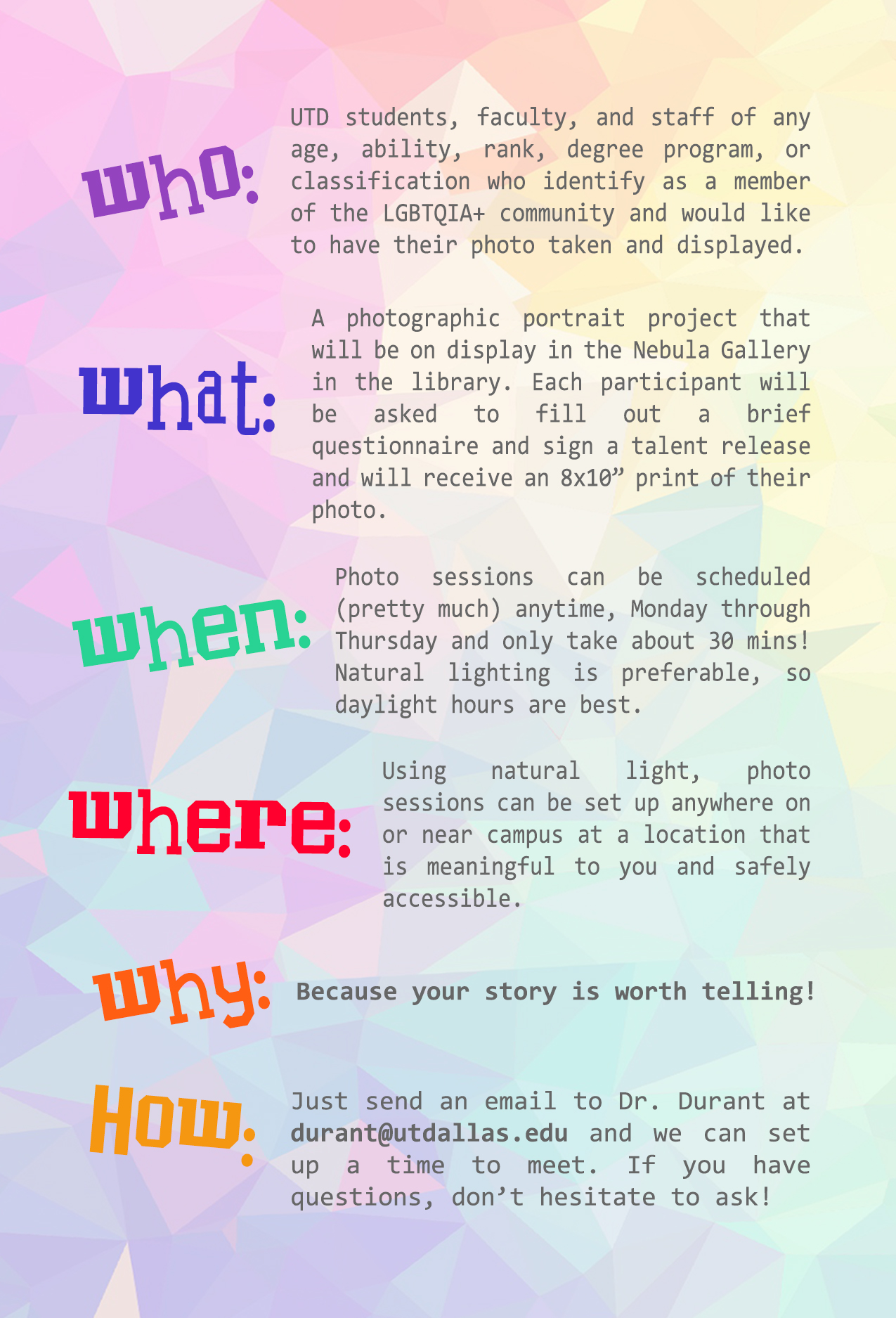
Participants complete a comprehensive questionnaire in which they openly share their personal stories, favored locations, and LGBTQIA+-friendly resources, among other aspects. They select a space that is significant to them and are encouraged to dress however they want to present themselves. Durant meets the portrait subject beforehand to establish rapport and put the volunteers at ease before capturing their pictures.
While the project is still in its early stages, Durant hopes to organize an exhibition on campus displaying the portraits. She is also actively exploring avenues for publishing the project, both in print and online, to make it accessible and inspirational beyond the boundaries of the University community.
The UTD LGBTQIA+ Community Portraits project originates from a transformative personal experience, during which Durant embarked on a project that required her to revisit her past. In 2020, Durant published “Stories, 1986-88,” a book that combined visual imagery with detailed personal narratives from her childhood.
“When I finished that project, I felt so empowered and felt like I had grown so much through that process that I wanted to facilitate that experience for others,” Durant said. “I don’t want to tell their stories. I want to make a space where they can tell their stories in their own words, in a way they want to be represented.”
Outside the classroom, Durant serves as the Jerry and Marilyn Comer Collection of Photography director. This compilation, gifted by Jerry Comer MS’77 in 2005, captures notable representations of the work of female artists and socially conscious photographers. The Comer Collection comprises numerous images documenting American history, including several portfolios from the Civil Rights movement, among more than 1,500 photographs dating from 1940 to the present.
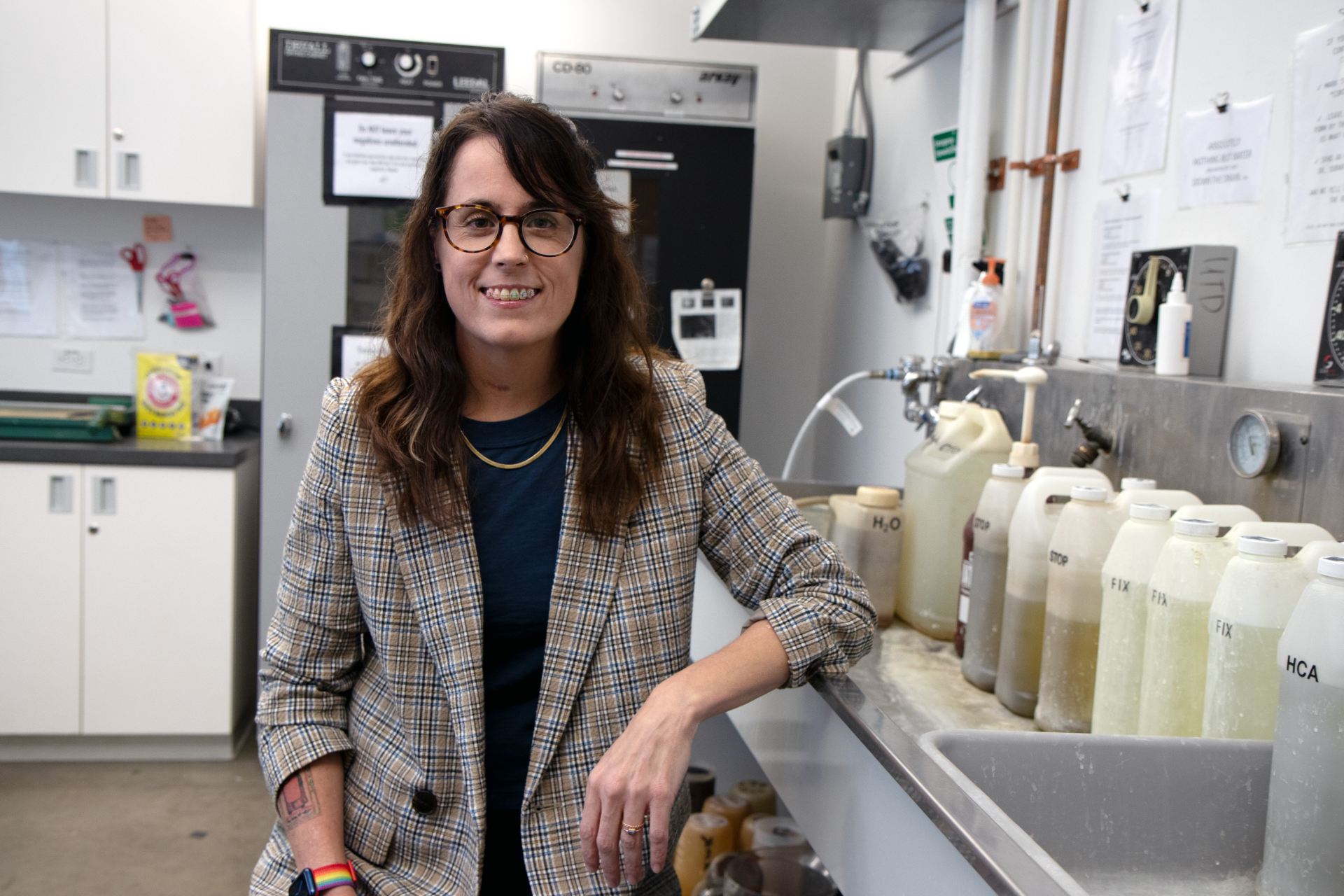
Durant’s work with the Comer Collection dates back to 2008 when, as a graduate student in the Humanities – Aesthetic Studies PhD program, she curated the first student-led exhibition of works from the collection. Currently, she leads efforts to digitize the collection and exhibit the material in spaces across campus, such as the UT Dallas SP/N Gallery, the ATC 3.102 gallery, and the Nebula Gallery inside the UT Dallas Library.
Those interested in participating can email Dr. Durant at durant@utdallas.edu for further information and registration.
Kaitlyn Tran contributed to this article.